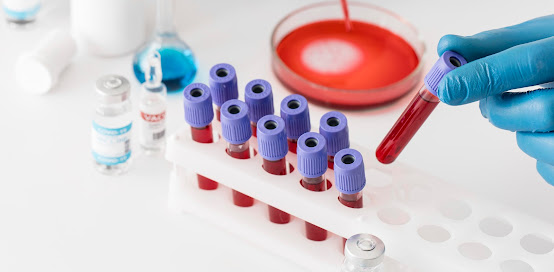Get to Know Blood Types and What They Mean
“Blood is memory without a language”
Blood
is a body fluid containing various proteins, nutrients, and oxygen that travels
through the circulatory system. Blood is the basis of life. Without blood, life
cannot be sustained. Blood is extremely important for life because of the
crucial functions it performs every single day. From the minute that we are
born to the day that we die, blood carries clean oxygen from the lungs to the
heart, and other essential organs and cells, whilst also carrying carbon
dioxide back to the lungs for exhalation. Other functions of the blood also
include coagulation, maintaining body temperature, hydraulic functions and
transporting hormones to name a few.
Now,
like most things, blood also has variations in the inherent nature of its
being. Blood’s composition is complex but intricate. Let us learn the chemical
composition of its various varieties and their significance.
From
the outside, blood is considered to be a fluid with a thin membrane but on the
inside it is composed of blood plasma, proteins, glucose, mineral ions,
hormones, carbon dioxide with Albumin as the main protein blood plasma. There
are several blood group variations in the human haematological system but they
are mainly categorized in two umbrella groups- (i) The ABO, AB blood group
system, discovered in the year 1900 by Karl Landsteiner and Jan Janksy in the
year 1907, respectively and (ii) The Protein mix that determines whether you
have a positive or negative blood type also known as the Rh system
Variation 1: A positive / A negative
A
positive or A+ blood means that your blood consists of type-A antigens with
inclusion of a protein known as the Rhesus (Rh) factor. It is one of the most
commonly found blood group in the world.
Compatibility: People of Type A blood group can donate
their blood to other type A individuals and type AB individuals. Type A blood
group people can receive blood only from type O individuals and type A
individuals.
Variation 2: B positive / B negative
B
positive or B+ blood means that your blood consists of type-B antigens with
inclusion of the Rhesus Rh factor.
Compatibility: Type B individuals can donate blood to other
B individuals and AB individuals. Blood groups with Type B can only receive
blood from type O and type B individuals.
Variation 3: AB positive / AB negative
AB
positive or AB+ blood means that your blood consists of both type A & B
antigens with inclusion of the positive Rhesus Rh factor.
Compatibility: Blood groups of Type AB are
eligible to give blood only to other AB individuals, but are allowed to receive
blood from any blood group type.
Note: Type AB-negative blood group is
considered to be a universal plasma donor, which means that anybody is allowed
to receive type AB-negative plasma. Patients with type AB-negative blood are
allowed and eligible to receive any Rh-negative blood type.
It
is important in cases of emergencies and traumas to be aware of your blood type
because in case of excessive blood loss, timely blood transfusion can prove to
be lifesaving for affected patients. Sohana Hospital, Mohali has a fully
functioning blood bank in Chandigarh, providing whole human blood/ partial
blood components to its inpatients and also to other private hospital’s nearest
blood banks and nursing homes around its region. The blood bank is operational
24x7 for 365 days of the year. It is NACO approved and is kept under hygienic
conditions with regular quality checks conducted to inspect blood bags, kits
and its components.




Comments
Post a Comment